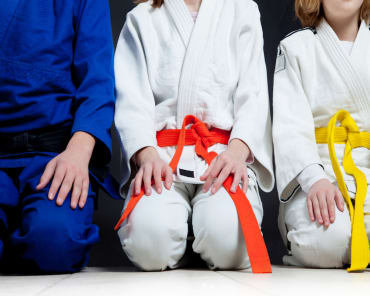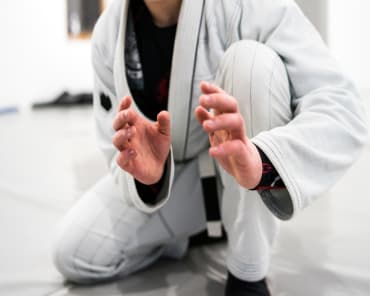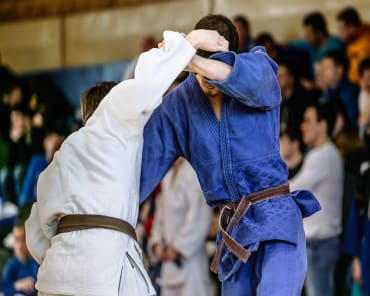In Brazilian Jiu-Jitsu (BJJ), one of the most critical aspects of improving your game is drilling. Drilling refers to the repetitive practice of specific techniques and movements, allowing students to build muscle memory and refine their skills. While sparring and live rolling may be the most exciting parts of Jiu-Jitsu training, drilling plays an essential role in ensuring that techniques become second nature. Consistent repetition of moves, whether it’s a submission, escape, or positional transition, is the foundation for mastery in BJJ. This article will explore why drilling is so important and how it directly impacts technique, muscle memory, and overall skill development.
1. Building Muscle Memory
At the core of effective drilling is the development of muscle memory. Muscle memory refers to the ability to perform a movement or technique without conscious thought after repeated practice. In Jiu-Jitsu, there are countless techniques to learn, and during a fast-paced sparring session, you don’t have time to stop and think about each movement step by step. Drilling ensures that when you find yourself in a specific position, your body automatically reacts with the correct technique.
For example, if you drill an armbar from guard repeatedly, your body will become so familiar with the setup, timing, and mechanics of the submission that when the opportunity arises during sparring or in a self-defense scenario, you can apply it without hesitation. Consistent drilling allows you to internalize these movements, making them part of your natural reflexes. Over time, this muscle memory becomes sharper, and you’ll notice that you can execute techniques more fluidly and with less effort.
2. Improving Technique Precision
The repetition of drilling allows students to focus on the finer details of each technique. When you’re first learning a move, your initial concern is usually just figuring out the basic mechanics. However, as you drill that same technique over time, you start to notice the subtle adjustments that can make it more effective. Whether it’s adjusting your grip, improving your body positioning, or learning the right amount of pressure to apply, drilling gives you the opportunity to fine-tune your techniques for precision and efficiency.
For example, in a basic guard pass, drilling helps you refine how to distribute your weight, angle your hips, and maintain control over your opponent. These details can make a significant difference between executing the technique successfully or getting swept. By focusing on these refinements during drills, you can sharpen your techniques and improve your overall effectiveness in sparring and competition.
3. Creating Automatic Responses Under Pressure
One of the most challenging aspects of Jiu-Jitsu is maintaining calm and making the right decisions under pressure, especially during live sparring or a self-defense situation. When faced with an aggressive opponent or a high-stakes competition, it’s easy to let adrenaline take over, leading to poor decision-making or improper execution of techniques. Drilling helps mitigate this by ingraining automatic responses into your muscle memory.
When you repeatedly practice a technique under controlled conditions, you begin to instinctively know what to do when similar situations arise during a live roll. For instance, if you’ve drilled escaping from mount position hundreds of times, your body will naturally follow the escape sequence when you find yourself under pressure in a match. Drilling not only builds muscle memory but also enhances your ability to stay composed and execute techniques efficiently when the stakes are high.
4. Increased Physical Conditioning and Timing
In addition to improving technique and muscle memory, drilling offers a great way to build endurance and physical conditioning. Many drills require students to perform movements repetitively and at a faster pace, which helps to increase cardiovascular endurance, core strength, and flexibility. For example, drilling sequences like guard passes or positional transitions often mimic the intensity of a live match, helping students improve their conditioning and ability to maintain consistent pressure throughout a roll.
Furthermore, drilling helps students understand the concept of timing in Jiu-Jitsu. Timing is crucial in BJJ, as the success of a technique often depends on executing it at the right moment. For example, a well-timed sweep can catch an opponent off balance, making the technique more effective. Drilling allows you to experiment with timing, giving you the opportunity to feel when a technique should be applied based on your opponent’s movement and positioning. The more you drill, the better you become at reading your opponent and knowing when to execute certain techniques.
5. Creating Long-Term Progress and Mastery
In Jiu-Jitsu, the journey from white belt to black belt is long, often taking a decade or more. Drilling is one of the most critical tools for creating long-term progress in your Jiu-Jitsu journey. While sparring teaches you how to apply techniques in a dynamic setting, drilling is where you truly master the movements. Each time you drill a technique, you’re building on the foundation of the previous session, and over time, those incremental improvements compound into mastery.
Many top-level Jiu-Jitsu practitioners emphasize the importance of consistent drilling throughout their careers. Even black belts continue to drill fundamental techniques that they’ve been practicing for years because it helps keep their skills sharp and adaptable. The key to long-term success in Jiu-Jitsu is never stopping the process of refining and improving your techniques, no matter your rank.
Conclusion
While it’s tempting to focus solely on live rolling or sparring sessions in Jiu-Jitsu, consistent drilling is the backbone of technical improvement. By drilling regularly, students build muscle memory, refine technique, and develop the ability to perform under pressure. Whether you’re working on basic positions, submissions, or advanced transitions, repetition is the key to making techniques second nature. Over time, drilling becomes the foundation upon which mastery is built, providing you with the skills, timing, and confidence needed to succeed in both training and real-life scenarios. So, the next time you hit the mats, remember that drilling is an investment in your Jiu-Jitsu future—one repetition at a time.






